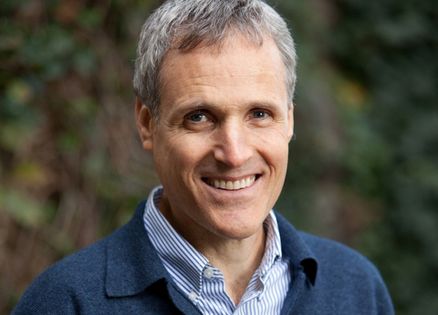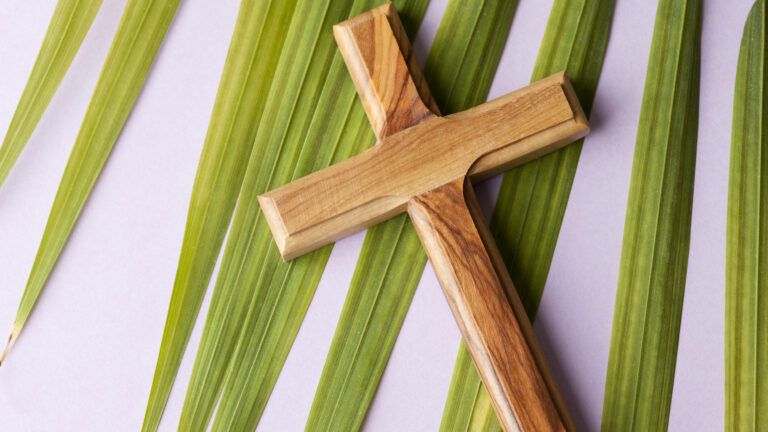To try to pray is to pray.
You can’t fail at it. Nobody can. Open your heart, open your mouth, say something, say nothing. Shout if you must. Raise your hands, clasp them in your lap. Sing if you please. You can start with a “Dear Lord” and end with an “Amen,” or you can dive right in.
You can close your eyes, get on your knees, use whatever language you like or no language at all. You can pray when you’re walking, running, driving to work, setting the table for dinner, lying in bed before you turn the light out.
To try it is to do it. It’s the only human endeavor I can think of where trying is doing. Reaching out is holding on. Joining in is letting go. Prayer is as natural as breathing. It’s fun. It’s a relief. It’s comforting. It’s a solace. You can tell yourself it’s an obligation or that it’s a terrific waste of time, but how often do you get to waste time with a purpose? If you’re like me and think every minute of your day has to be accounted for, you really do need prayer. You’ll run out of steam without it.
You can do it in private. You can do it with a friend at your kitchen table or in a church pew or with your family at dinner. You can do it in a windowless basement with a twelve-step group or out under the stars on a summer night. You can practice it all you like, but the practice itself is perfect. No need for a dress rehearsal. All your false attempts, your back-up-and-try-again efforts—they’re it.
You will wonder if you’re doing it right. You will want a little more guidance. You’ll want to hear from others who take it seriously and learn from their example. Even the finest cooks look for inspiration in a new cookbook. But the masters will affirm that prayer is a school for amateurs because doing it from the heart is all that matters. That’s the only expertise you need.
For thirty years I’ve made a conscious effort to work on my prayer life. I do it religiously, faithfully, absentmindedly. I often forget to pray, but I don’t forget how. I don’t think you really can. A need, a friend, a worry, a piece of bad news or a cause for celebration pulls me back. Returning is part of the process. So is waiting. Besides, being critical of your prayers defeats the whole purpose.
What has helped me? The Bible, especially the Psalms. A faith community that challenges me and keeps me on my toes—Sundays at church, I get recharged. Writers who know more than I do. Friends who give me working models of passionate faith. A family that prayed together and still does at every dinner. And for almost all those thirty years I’ve worked for a magazine where I’ve been expected to ask boldly, sometimes brazenly, about other people’s prayer lives.
“Do you ever pray?” I ask, or “When did you pray?” or “Did you pray about that?” You’d be surprised by the answers and how committed people are to prayer. I remember the actress whom I had written off as a spiritual lightweight because she showed up in glossy fashion magazines. “I pray all the time,” she said without a pause. Or there was the newscaster who spoke profoundly and humbly of the people in disasters she prayed for, disasters she had to report on. “Easy enough for you to say,” I thought, until I discovered quite by accident how she followed up those prayers with substantial financial help. (No, I can’t say who she was. Giving anonymously was a crucial part of her faith.) And there have been the countless subjects who have promised to put me in their prayers. One recently emailed me because she had a sense that I needed urgent prayer. (She was right.)
To tune into people’s prayers is to look into their souls. It’s to learn how to love them and stretch my own soul. Through my job I’ve heard the prayers of farmers battling drought, athletes pushed to their physical limits, people dealing with disease and financial turmoil and incalculable loss. I can’t begin to say what an effect all these stories have had on me except to give you a glimpse of the ones that I still retell myself.
I’ve called my book Ten Prayers You Can’t Live Without because it’s an attempt to break down and categorize the prayers I find the most helpful. Do I expect you to pray exactly the prayers that I have in the same way? Goodness no. Prayer is personal. Find the way that works best for you. Even the Lord’s Prayer can be said in different ways. I hope I can expand your thinking about it and help you find other prayers to use. There’s “Nooooo” and “Thanks” and “Forgive me, I blew it” and “Hi, God!” At other times I turn to more formal prayers like the one a mentor taught me: “Jesus Christ, have mercy upon me. Make haste to help me. Rescue me and save me. Let thy will be done in my life.”
As I said, we’re all amateurs at prayer. You can practice a prayer in your head, like a conversation you expect to have with your boss. You want to get the words right. You want to make sure you’re understood. But don’t forget that every thought you’ve phrased and rephrased in your mind has been heard and understood better than you could have expressed it.
“Search me, O God, and know my heart,” the psalmist says. “Try me and know my thoughts.”
Every writer hopes to be read, but I would be just as happy if you stopped reading me, dog-eared a page or marked a spot in your e-reader and prayed instead. A doctor I interviewed once told me that for him, reading was a form of prayer. I believe that. Would that reading this book feels like prayer to you (writing it certainly has been for me). A good read makes me want to talk to the author. But in this case if you talked to our Maker, I would feel like I really accomplished something.






